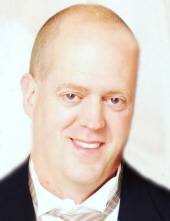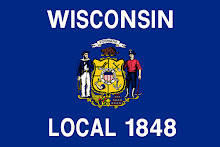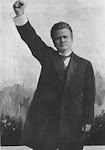 Schneider starts out by claiming money isn't as important in election such as other factors, like the gerrymandering the Teapublicans are doing not only in Wisconsin, but across the country. Of course, Schneider elides over the point that the gerrymandering wouldn't have even been possible in the first place if it weren't for the flood of Big Money that allowed them to buy the elections that put the Teapublicans in office in the first place.
Schneider starts out by claiming money isn't as important in election such as other factors, like the gerrymandering the Teapublicans are doing not only in Wisconsin, but across the country. Of course, Schneider elides over the point that the gerrymandering wouldn't have even been possible in the first place if it weren't for the flood of Big Money that allowed them to buy the elections that put the Teapublicans in office in the first place.Then Schneider comes up with this foolishness:
There's also the small matter that campaign spending is free speech, protected by the First Amendment. The U.S. Supreme Court has moved quickly recently in removing restrictions on political speech, but since 1976's Buckley vs. Valeo decision, it steadfastly has maintained that money is speech because "virtually every means of communicating ideas in today's mass society requires the expenditure of money."Oh, where to start?
Thus, restrictions on campaign spending restrict who can speak and how much. This leaves a select few with the resources to make a difference in campaigns; newspapers, celebrities, television stations and YouTube video creators all would enjoy a larger share of the public discourse by utilizing their built-in audiences.
Finally, Americans aren't nearly as gullible as campaign finance reformers believe them to be. We don't sit in front of our glowing tubes all night, uncritically soaking in campaign advertisements without a modicum of skepticism. Generally, people recognize ads as propaganda and process them accordingly. Whether a voter sees a television ad once or 30 times, the ad is usually taken slightly less seriously than an episode of "The Bachelor."
First of all, money is not free speech, despite the right's fervent belief. No matter how much they clench their eyes and fists and wish it so, it just isn't and it never will be. And by limiting this flood of corporate special interest, it doesn't limits anyone's right on free speech. If anything, it levels the playing field.
And that is what the right is afraid of. They know they can't win when with their candidates when everything else is equal. They need every advantage they can get - from gerrymandering to voter suppression to the flood of Big Money.
It's rather ironic that Schneider, whose article was published in a newspaper, is complaining about them. Doubling on the irony is that the corporate media, whether it is the printed page, TV or squawk radio are controlled by conservatives. The only thing that people like Schneider or his conservative keepers could complain about is that they don't have quite full control of the message, but really, it's close enough that the difference is negligible.
Schneider's folly continues with his false assertion that the extra money flowing into elections only mean a few more television commercials. That is only the tip of a very large iceberg.
What Schneider conveniently omits from his mewling is that the dark money that has been flowing is responsible for so much more than the saturation of the airwaves with commercials. The money has been used to gobble up newspapers, TV stations and radio stations - especially those that might, y'know, actually report the truth. The money is used to support the almost innumerable propaganda groups like Media Trackers, Wisconsin Reporter, WPRI, and MacIver Institute. It is also used to help individual propagandists like Aaron Rodriguez, James Wigderson and Schneider himself. The dark money is also used to sponsor right wing attack groups like the misnamed Americans for Prosperity, Club for Growth, Citizens for Responsible Government and Wisconsin Institute for Law and Liberty.
And let us not forget that it is also used to help Scott Walker avoid the consequences for his illegal politicking by first paying for his legal defense cooperation fund and then for the multitude of lawsuits meant to put a choke hold on John Doe.
By far, the greatest proof that this push for even more dark money flowing into elections is about power and not freedom of speech is that they are doing it in the first place. People like the Koch Brothers, Sheldon Adelson and Michael Grebe - slimy as they are - are not idiots. They would not invest billions of dollars into elections nationwide - from local to federal races - unless they felt fairly confident that they would get a nice return on their investment. And the giveaways that Teapublicans in Wisconsin and across the country have given to these special interests is evidence that it is indeed working for them.
Heck, if it wasn't working for them, they wouldn't go to such extremes as breaking the law in order to channel their money into these political races.
If Schneider was truly interested in protecting democracy and free speech, I would urge him to get involved with the Move to Amend movement which is sweeping the nation. That is, of course, if his corporate keepers allow him.















In 1980 David Koch entered politics, running on the Libertarian Party ticket for VP (with future Cato Institute head Ed Crane). "We'd like to abolish the Federal Elections Commission and all the limits on campaign spending anyway," Koch told New York magazine.
ReplyDeleteThat very year, Eric O'Keefe (future head of Wisconsin Club For Growth) was elected National Director of the Libertarian Party (their platform said “We urge the repeal of federal campaign finance laws, and the immediate abolition of the despotic Federal Election Commission.”).
Along the way through the Tea Party emergance, O'Keefe has created the Sam Adams Alliance, which coordinates the TP public relations media like Wisconsin Reporter (starring pundit-for-all-things-Tea Party Matt Kittle).
Wisconsin Club For Growth refuses to reveal its funding sources, though it spends large amounts attacking opponents of their TP candidates.